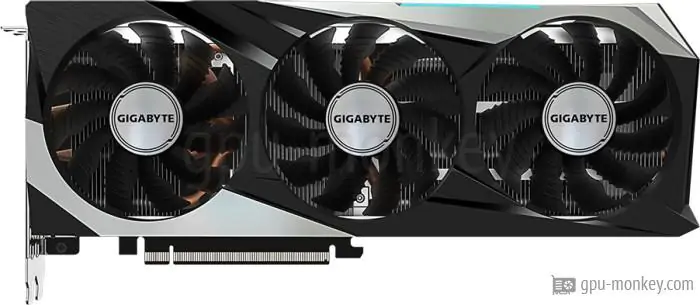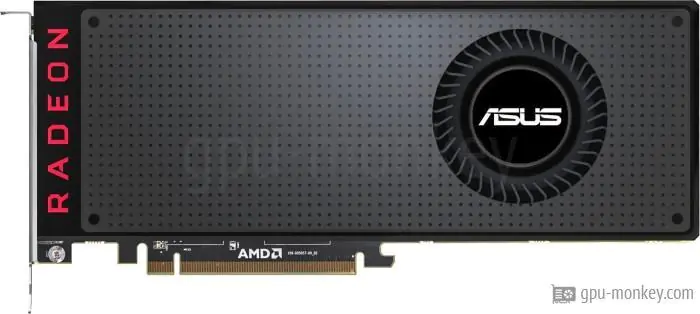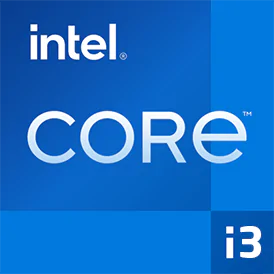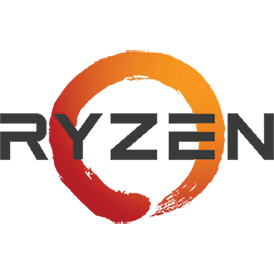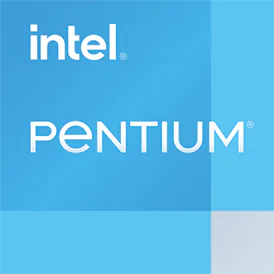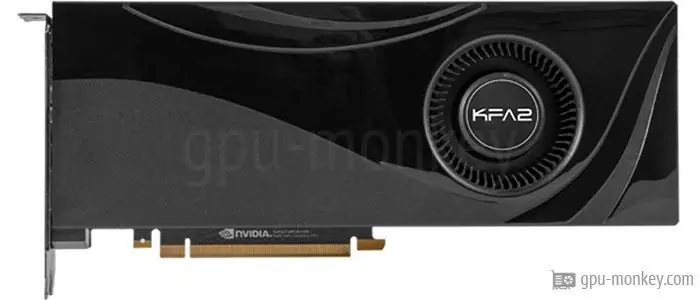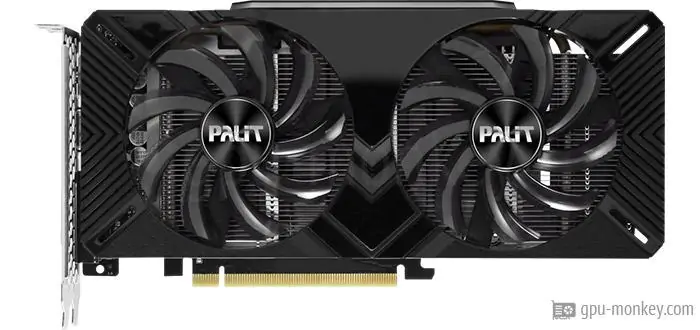GPU ◍ What Is a GPU? Graphics Processing Units Defined
Comparison of video cards by their generation and family. The higher the version of the video card, the more advanced and productive the model is. More often than not, higher generation graphics cards are more efficient and have modern memory. Pay attention to the number of shaders (more = better). Use our GPU comparison tool to pick the best graphics card for your build and budget. Consider the following: - Which version of GPU is best? - What is the best graphics card? On our website you will find a database of graphics cards and GPUs with specifications of products released in recent years.
-
Based on
AMD Radeon RX 6800
 AMD RX Vega 64
AMD RX Vega 64
-
GPU Chip
Navi 21
 Vega 10 XT
Vega 10 XT
-
Execution units
60
 64
64
-
Shader
3840
 4096
4096
-
Render Output Units
96
 64
64
-
Texture Units
240
 256
256
Memory ★ How much GPU memory do I need
Graphics card comparison {GIGABYTE Radeon RX 6800 Gaming 16G} vs. {ASUS Radeon RX Vega 64} in terms of internal memory performance. The more memory a video card has, the faster the GPU can process calculations. This block is taken into account in the results of the overall performance rating. Pay attention to the amount of memory, memory type, and memory bus bandwidth. The higher these numbers are, the faster and more productive the graphics card is. The only two types of memory that are actually on the GPU chip are register and shared memory. On our website you can see the amount of memory of the GPU. Pay attention to what is important: - Which type of memory is used exclusively for video cards? - What are the features of a video card? - Do video cards have their own RAM?
-
Memory Size
16 GB
 8 GB
8 GB
-
Memory Type
GDDR6
 HBM2
HBM2
-
Memory Speed
2 GHz
 0.945 GHz
0.945 GHz
-
Memory Bandwith
512 GB/s
 484 GB/s
484 GB/s
-
Memory Interface
256 bit
 2048 bit
2048 bit
Clock Speeds ✤ GPU Compare Tool
Let's start comparing the base clock speeds of {GIGABYTE Radeon RX 6800 Gaming 16G} vs. {ASUS Radeon RX Vega 64}. The higher the start and turbo frequency of the GPU, the more efficient and productive it is in gaming and work applications. This unit affects the overall gaming performance of the graphics card. The graphics card that has all the higher clock frequency characteristics will win. Your GPU/Graphics card behaves similarly to a CPU, it has a certain clock speed it runs at, and it’s measured in MHz (Megahertz). A number of factors should not be overlooked: - What is a good GPU clock speed? - Is higher clock speed better GPU - Does GPU clock speed matter? Compare graphics cards online on our website.
-
Base Clock
1.775 GHz+ 4 %
 1.247 GHz
1.247 GHz
-
Boost Clock
2.105 GHz
 1.546 GHz
1.546 GHz
-
Avg (Game) Clock
1.815 GHz

-
Overclocking
Yes
 Yes
Yes
Thermal Design ╬ Videocard TDP Chart - Performance / Power
Let's compare graphics cards {GIGABYTE Radeon RX 6800 Gaming 16G} and {ASUS Radeon RX Vega 64} in thermal efficiency. Temperature control (TDP) is an extremely important indicator. The higher it is, the harder it is to cool the graphics processor when performing complex computational workloads. The thermal design power (TDP) is the maximum amount of power the cooling system needs to dissipate. A lower TDP typically means that it consumes less power. Find answers to important questions: - What is TDP in video card? - What is TDP temperature? - How do I check my GPU TDP? Compare the performance of the two GPUs and choose the appropriate one.
-
TDP
250 W
 295 W
295 W
-
TDP (up)
285 W
 --
--
-
PCIe-Power
2 x 8-Pin
 2 x 8-Pin
2 x 8-Pin
Cooler & Fans • Top Best GPU Coolers
Cooling systems for video cards in most cases are represented by active variants, less common are models with passive cooling in the form of aluminum or copper radiators. In this block you can see what type of cooling is used by manufacturers and compare these figures. To find the best GPU, consider the following: - How many fans does a graphics card have? - What is the difference between a blower GPU and a GPU? - Why are there different types of GPU coolers? Comparing graphics cards for your laptop online will allow you to make a choice.
-
Fan-Type
Axial
 Radial
Radial
-
Cooler-Type
Air cooling
 Air cooling
Air cooling
-
Fan 1
3 x 80 mm
 1 x 70 mm
1 x 70 mm
-
Noise (Idle)
0 dB / Silent
 --
--
-
Noise (Load)
35-36 dB
 --
--
Connectivity × Video card connections and connectors, inputs and outputs
Technical information showing possible interfaces for connecting your graphics card to external devices. Here you will find specifications and a comparison of graphics cards by the number of HDMI ports, and find out the difference in the maximum number of monitors that can be connected. Learn about the nuances of connecting a graphics card to your computer or laptop: - What ports/connectors do specialized graphics cards use? - What are the different types of video ports? - How do I connect a video card to a monitor? Video cards have three different types of connectors: PCI, AGP, and PCI Express. All connectors look different and are easily distinguished from each other. But it's best to know the specifics right away so you can choose the best video card for your PC.
-
Max. Displays
4
 4
4
-
HDCP-Version
2.3
 --
--
-
HDMI Ports
2x HDMI v2.1
 1x HDMI v2.0b
1x HDMI v2.0b
-
DP Ports
2x DP v1.4a
 3x DP v1.4
3x DP v1.4
Featureset × What is GPU and Its Features
Comparison of {GIGABYTE Radeon RX 6800 Gaming 16G} and {ASUS Radeon RX Vega 64} graphics cards by maximum supported display resolution, DirectX versions, as well as backlight modes. Ask yourself the questions: - What are the features of a good graphics card? - What defines a good graphics card? - What is most important in a graphics card? If you don't know how to choose the right graphics card, use our comparison service. As a result, you will find the best GPU for your computer. More powerful GPUs support more advanced features, letting you perform more complex tasks or perform the same task using a different technique.
-
Max. resolution
7680x4320
 7680x4320
7680x4320
-
DirectX
12_2
 12_1
12_1
-
Raytracing
Yes
 No
No
-
DLSS / FSR
No
 No
No
-
LED
GIGABYTE RGB Fusion
 No LED lighting
No LED lighting
Supported Video Codecs • Video File Formats and Codecs
Here you can see what video codecs are supported by {GIGABYTE Radeon RX 6800 Gaming 16G} and {ASUS Radeon RX Vega 64} video cards. The information from this block does not count towards the overall performance rating. There are hundreds of audio and video codecs in use today. Some have been created by Microsoft, but the vast majority of codecs were created by other companies, organizations, and individuals. mportant things to keep in mind: - Does decoding on the GPU save power? - Do GPUs support a specific codec standard? - Why do I need a GPU and not a CPU? GPUs usually contain a dedicated video decoder, so compare performance for different video cards.
-
h264
Decode / Encode
 Decode / Encode
Decode / Encode
-
VP8
Decode / Encode
 Decode
Decode
-
h265 / HEVC
Decode / Encode
 Decode / Encode
Decode / Encode
-
VP9
Decode / Encode
 Decode / Encode
Decode / Encode
-
AV1
Decode
 No
No
Dimensions ✦ GPU comparison / graphics card comparison
This is a comparison of graphics cards {GIGABYTE Radeon RX 6800 Gaming 16G} and {ASUS Radeon RX Vega 64} where you can see the difference in width, length, weight and number of PCIe slots you have on your motherboard. Choose the graphics card that will fit in your computer case. Always check the actual width of the graphics card in inches/millimeters. We really cannot stress this enough. Compare the performance of the video cards you like, ask yourself the following: - How to measure GPU size? - Are there different GPU sizes? - What are the different types of GPUs? Graphics card come in different sizes. Depending on cooling mechanism and manufacturer it varies.
-
Length
286 mm
 280 mm
280 mm
-
Height
112 mm
 127 mm
127 mm
-
Width
58 mm
 40 mm
40 mm
-
Width (Slots)
3 PCIe-Slots
 2 PCIe-Slots
2 PCIe-Slots
Additional data ⨳ Online Graphics cards comparison
To make the right choice between {GIGABYTE Radeon RX 6800 Gaming 16G} and {ASUS Radeon RX Vega 64} graphics cards, you may look at the release date, CPU manufacturing process, and PCIe interface version supported. To choose the best graphics card for your motherboard and your computer as a whole, consider a number of factors. Ask yourself the questions: - How do I choose a good graphics card? - How do I choose a processor and graphics card? Figure out what kind of graphics card you need for your computer.
-
GPU Interface
PCIe 4.0 x 16
 PCIe 3.0 x 16
PCIe 3.0 x 16
-
Release date
Q4/2020
 Q3/2017
Q3/2017
-
Structure size
7 nm
 14 nm
14 nm
-
Part-no
GV-R68GAMING-16GD
 RXVEGA64-8G
RXVEGA64-8G
-
Documents
data sheet
 --
--
